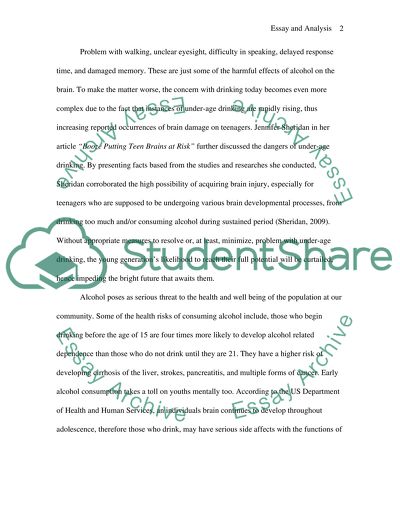Cite this document
(“Harmful effects of alcohol on the brain Essay Example | Topics and Well Written Essays - 1250 words”, n.d.)
Retrieved from https://studentshare.org/education/1441454-essay-and-analyisis
Retrieved from https://studentshare.org/education/1441454-essay-and-analyisis
(Harmful Effects of Alcohol on the Brain Essay Example | Topics and Well Written Essays - 1250 Words)
https://studentshare.org/education/1441454-essay-and-analyisis.
https://studentshare.org/education/1441454-essay-and-analyisis.
“Harmful Effects of Alcohol on the Brain Essay Example | Topics and Well Written Essays - 1250 Words”, n.d. https://studentshare.org/education/1441454-essay-and-analyisis.


